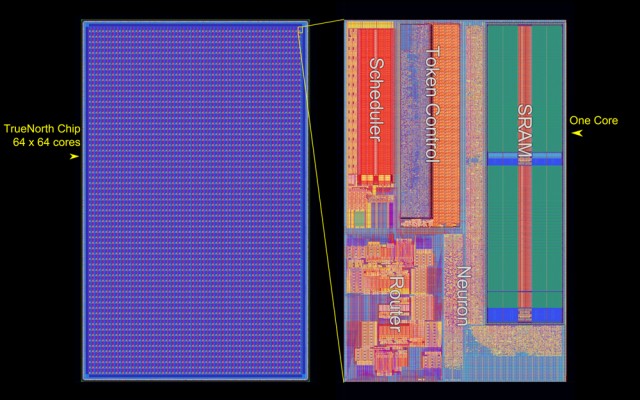IBM researchers make a chip full of artificial neurons
Ars Technica » Scientific Method 2014-08-07

For raw calculating prowess, a run-of-the-mill computer can handily outperform the human brain. But there are a variety of tasks that the human brain—or computer systems designed to act along the same principles—can do far more accurately than a traditional computer. And there are some behaviors of neurons, like consciousness, that computerized systems have never approached.
Part of the reason is that both the architecture and behavior of neurons and transistors are radically different. It's possible to program software that incorporates neuron-like behavior, but the underlying mismatch makes the software relatively inefficient.
A team of scientists at Cornell University and IBM Research have gotten together to design a chip that's fundamentally different: an asynchronous collection of thousands of small processing cores, each capable of the erratic spikes of activity and complicated connections that are typical of neural behavior. When hosting a neural network, the chip is remarkably power efficient. And the researchers say their architecture can scale arbitrarily large, raising the prospect of a neural network supercomputer.
Read 11 remaining paragraphs | Comments